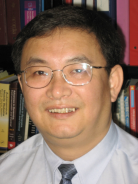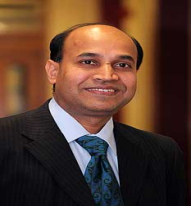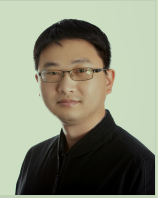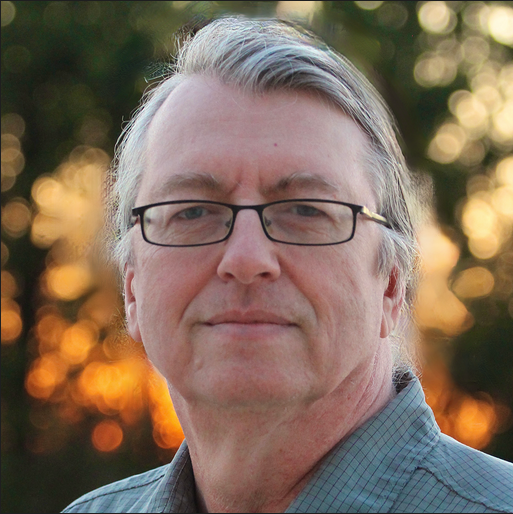Speakers 2022

Prof. Chun-Yi Su
Concordia University, Canada
Speech Title: Modeling and Control of Soft Elastomers in Soft Robots
Abstract: Soft robotics aims to develop a new generation of robots, showing great potentials in expanding the capabilities of robots to that were not possible before. Recent soft robots are made from smart materials, especially soft elastomers. Such materials featuring high energy densities, large strokes and fast responses are playing an increasingly important role in soft robots’ applications. Currently soft robots using soft elastomers are far from conducting designated tasks, due to the lack of fundamental research on modeling and control, which prevent them from practical applications. So far, theoretical research lags far behind practical showcases. This talk will present the state of the art of the fundamental research on modeling, controller design, and potential applications of soft elastomers.
Bio: Dr. Chun-Yi Su received his Ph.D. degrees in control engineering from South China University of Technology in 1990. After a seven-year stint at the University of Victoria, he joined the Concordia University in 1998, where he is currently a Professor of Mechanical and Industrial Engineering and Honorary Concordia University Research Chair. His research covers control theory and its applications to various mechanical systems, with a focus on control of systems involving hysteresis nonlinearities. He is the author or co-author of over 500 publications, which have appeared in journals, as book chapters and in conference proceedings. He has been identified as Highly Cited Researchers from Clarivate since 2019.
Dr. Su has served as Associate Editor for several journals, including IEEE Transactions on Automatic Control, IEEE Transactions on Control Systems Technology, IEEE Transactions on Cybernetics, and several other journals. He is a Distinguished Lecturer of IEEE RA Society. He served for many conferences as an Organizing Committee Member, including the General Chairs and Program Chairs.

Professor Dr. Subhas Mukhopadhyay
FIEEE (USA), FIET (UK), FIETE (India)
Distinguished Lecturer – IEEE Sensors Council
School of Engineering, Macquarie University, NSW 2109
Speech Title: IoT Enabled Sensors for Smart City and Environmental Monitoring
Abstract: The advancement of sensing technologies, embedded systems, wireless communication technologies, nano-materials, and miniaturization makes it possible to develop IoT enabled smart sensing systems. IoT enabled sensors empowers the vision of a Smart City to become a reality. IoT enabled sensors provides real time environmental data which will provide full awareness of weather/climate and can be used to take any strategic/corrective actions to address issues. This seminar will discuss fabrication and developmental works on IoT enabled sensors at Macquarie University based on MEMS as well as flexible materials for home, health and environmental monitoring. The success of the Commonwealth funded (Govt. of Australia) Smart city project and New South wales Government Funded Water project will be shared.
Bio: Subhas holds a B.E.E. (gold medallist), M.E.E., Ph.D. (India) and Doctor of Engineering (Japan). He has over 31 years of teaching, industrial and research experience.
Currently he is working as a Professor of Mechanical/Electronics Engineering, Macquarie University, Australia and is the Discipline Leader of the Mechatronics Engineering Degree Programme. His fields of interest include Smart Sensors and sensing technology, instrumentation techniques, wireless sensors and network (WSN), Internet of Things (IoT), Mechatronics etc. He has supervised over 45 postgraduate students and over 150 Honours students. He has examined over 75 postgraduate theses.
He has published over 450 papers in different international journals and conference proceedings, written ten books and fifty two book chapters and edited eighteen conference proceedings. He has also edited thirty five books with Springer-Verlag and thirty two journal special issues. He has organized over 20 international conferences as either General Chairs/co-chairs or Technical Programme Chair. He has delivered 402 presentations including keynote, invited, tutorial and special lectures.
He is a Fellow of IEEE (USA), a Fellow of IET (UK), a Fellow of IETE (India). He is a Topical Editor of IEEE Sensors journal. He is also an associate editor of IEEE Transactions on Instrumentation and Measurements and IEEE Reviews in Biomedical Engineering (RBME). He is a Distinguished Lecturer of the IEEE Sensors Council from 2017 to 2022. He chairs the IEEE Sensors Council NSW chapter.
More details can be available at
https://researchers.mq.edu.au/en/persons/subhas-mukhopadhyay
https://scholar.google.com.au/citations?user=fsu2yL8AAAAJ&hl=en
https://orcid.org/0000-0002-8600-5907
ICST'15: https://icst2022iitm.in/sydney/

Prof.Chenguang (Charlie) Yang
University of the West of England, Bristol
Corresponding Co-Chair of CAFM, IEEE Robotics and Automation Society
Fellow of British Computer Society and Higher Education Academy
Speech Title: Robot Skill Learning and Human-like Control
Abstract: Expressing, learning and reusing skills as modularized ones can strengthen the generalization ability of skills and reusability. Human-Robot shared control combines the advantages of both human and robot. This talk will introduce our advance in the field of robot skill learning and human-robot shared control. We use control theory to model the control mechanism of motor neurons to assist us developing human-like robot controllers so that the robot can realize variable impedance control to adaptively physically-interact with the changing environment. We further propose a multi-task impedance control and impedance learning method used on a human-like manipulator with redundant degrees of freedom to achieve compliant human-robot interaction motor control. Learning from human demonstration methods are generally used to efficiently transfer modularized skills to robots using multi-modal information such as surface electromyography signals and contact forces, enhancing the effectiveness of skill reproduction in different situations. We have also developed an enhanced neural-network shared control system for teleoperation, which uses the redundancy of joint space to avoid collisions automatically. The operator does not need to pay attention to possible collisions during manipulation. Besides, with the help of deep learning, we designed a tool power compensation system for teleoperation surgery, thereby enhancing the performance of the force and motion tracking at both ends of the teleoperation system. Furthermore, this talk will also introduce our research on the topics of human-robot collaboration and skill generalization.
Bio: Professor Chenguang (Charlie) Yang is the leader of Robot Teleoperation Group of Bristol Robotics Laboratory, and the corresponding Co-Chair of the Technical Committee on Collaborative Automation for Flexible Manufacturing (CAFM), IEEE Robotics and Automation Society. He received PhD degree from the National University of Singapore (2010) and performed postdoctoral research at Imperial College London. He is a recipient of the prestigious IEEE Transactions on Robotics Best Paper Award (2012) and IEEE Transactions on Neural Networks and Learning Systems Outstanding Paper Award (2022) as lead authors. He has been awarded EPSRC Innovation Fellowship and EU FP-7 Marie Curie International Incoming Fellowship. He is a Fellow of British Computer Society and Higher Education Academy. His research interest lies in human robot interaction and intelligent system design.

Gregor von Laszewski
University of Virginia
Charlottesville, VA, USA
Speech Title: Reusable Hybrid and Multi-Cloud Analytics Service Framework
Abstract: Over the last several years, the computation landscape for conducting data analytics has completely changed. While in the past, a lot of the activities have been undertaken in isolation by companies, and research institutions, today's infrastructure constitutes a wealth of analytics services offered by a variety of providers that offer opportunities for reuse, interactions while leveraging service collaboration, and service cooperation. In this talk, we project our vision to develop an analytics services framework to integrate reusable hybrid multi-services
across different cloud infrastructure and service providers as well as on-premise infrastructure and services. It includes (a) analytics services that explicitly target the intersection of hybrid multi-provider analytics services, (b) the integration of sensor networks into the service data, (c) the integration of advanced modelling services as part of analytical tasks such as earthquake prediction, and (d) the coordination of these services. We showcase how our vision can integrate leveraging service composition with cooperation and competition analytics services. We demonstrate the activities while utilizing benchmark analytics services as used by the MLCommons science benchmark working group.
Bio: He is a Research Professor at the University of Virginia in the Biocomplexity Institute. His current interests include Multicloud Hybrid Cloud Computing Analytics Services, MLCommons Benchmarking of Deep Learning Applications, Workflow Management for Benchmarking of DeepLearning Algorithms, and Student Research
Project Supervision. He initiated the Cloudmesh project which hybrid multi-cloud toolkit to enable cloud computing across various Cloud and Container IaaS such as OpenStack, AWS, Azure, docker, docker swarm, and Kubernetes. Past positions include, for example, Argonne National Laboratory, University of Chicago, and Indiana University, where he worked on Cloud Computing and Grids.
More speakers info. will be released soon.
